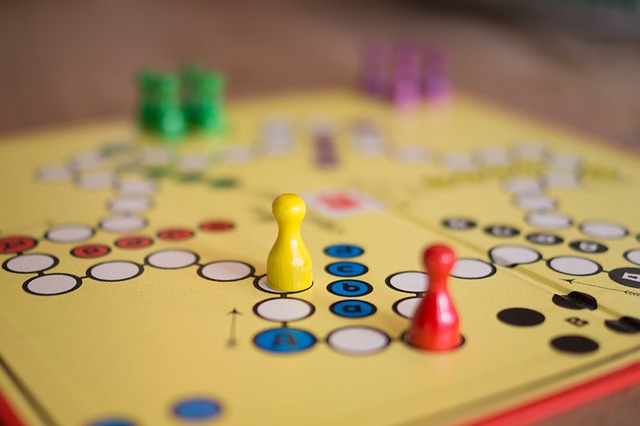When I go in my basement, I see several shelves stacked with brightly colored boxes containing the board games from my younger days (and my children’s younger days). It seems that board games have gone out of style today, but we have many fond memories of taking out the game boards and the various pieces and competing against one another to be the winner of the game. Here are some of the board games we played:
- Monopoly: The object of this game is to amass property, houses, hotels, and money. If I am the winner of the game, I eventually own Boardwalk, Park Place, and all of the property on the board as well as having lots of money. And then…everything goes back in the box.
- Risk: The object of this game is to conquer countries with your armies. If I am the winner of this game, it means my armies have taken over every country in the world such that I own the whole world! And then…everything goes back in the box.
- The Game of Life: In this game, sometimes you get married and sometimes you don’t. Sometimes you have children and sometimes you don’t. You could have a high-paying career (such as a doctor or lawyer) or perhaps earn a somewhat lower salary. At the end of the game, you can wind up at Millionaire Acres or in the Poor House. And then, regardless of how your journey has gone or how it has ended…everything goes back in the box.
The common theme of the above is obvious. Regardless of the game, regardless of how you play it, regardless of whether you win or lose, when the game is over, everything goes back in the box. You don’t get to keep any of the money you made or any of the countries you conquered — it all goes back in the box.
In Alma 50, the Nephites and Lamanites engage in something similar to the game of Risk described above (except for real, of course). Virtually all of their actions have to do with their “possessions” — either protecting their possessions or being in a position to add to their possessions. For example, the Nephites:
- “placed armies on the south, in the borders of their possessions” (verse 10)
- “did seek to cut off the strength and the power of the Lamanites from off the lands of their possessions, that they should have no power upon the lands of their possession” (verse 12)
- “began the foundation of a city…by the line of the possessions of the Lamanites” (verse 13)
This is by no means meant to be critical of the efforts of the Nephites to protect their lands and their people. Rather, in looking at how focused these people were on their possessions, it causes me to wonder how focused I am on my own possessions today.
“For we brought nothing into this world, and it is certain we can carry nothing out” (1 Timothy 6:7)
For example, how much time/money am I willing to spend to add to my possessions? While there’s nothing wrong with having possessions (hey, I own all those board games), do I ever reach the point where I realize my possessions are enough? Or, should I devote every day of my life to trying to add to my possessions? When I am near death, will I look back and rue the missed opportunities to enjoy time with my loved ones or enjoy the possessions I had? I can’t take the possessions with me — when the game is over, everything goes back in the box.
“For what shall it profit a man, if he shall gain the whole world, and lose his own soul?” (Mark 8:36)
And, even more critical, what spiritual price am I willing to pay to add to my possessions? Am I willing to be cruel or dishonest toward other people? Am I willing to sacrifice Church time? Am I willing to sacrifice prayer time or time reading the scriptures? Basically, am I willing to compromise my relationship with God to have possessions in this life? Although people seem willing to make this choice every day, it doesn’t seem like a wise choice from the perspective of eternity.
Risking your eternal home to have more possessions in this life is like giving up your house to win a game of Monopoly. When the game is over and everything goes back in the box, how foolish would you feel to now be without a home and have nothing to show for it? How much worse to have no mansion in heaven when we reach the end of our lives and have nothing to show for it? The possessions that we worked so hard to amass won’t be coming with us — they’ll be going back in the box because the game is over.

This article has undergone ministry review and approval.





0 Comments